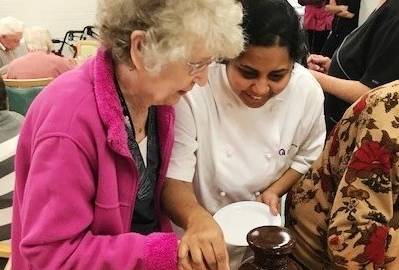08
Nov 2019
Top hospital chefs serve it up to critics at awards ceremony.
Published in General on November 08, 2019

People usually have nothing good to say about hospital food. In fact, describing someone’s cooking as similar to hospital food is considered as an insult. Fortunately, the norm that surrounds hospital food is about to change in Australia. Healthcare professionals teamed up with some of the country’s top chefs in order to raise the standard on hospital food. They recently participated in a conference in Melbourne for that purpose.
"The best way to lift the bar is to show what's happening at some amazing facilities and by people doing incredible work," said Mr. Troy Litzow, chairman of the institute's Queensland/NSW branch.
A good example is Epworth Richmond which was awarded the IHHC Project of the Year. The hospital management's efforts to providing high-quality food service to their patients were recognized. They were also commended for achieving the highest standard for infection control, and even implementing a system which helps reduce food waste and cost.
The hospital boasts a cooking area worth $8 million to prepare these meals, which is actually the largest room service kitchen in a healthcare setting in the eastern hemisphere. With this, they’re able to produce over 3000 meals a day for 700 overnight patients. They have over 30 chefs which include a pastry chef who is tasked to make in-house pastries and desserts, and a saucier who is in charge of making fresh sauces and stocks every single day. They even have a dedicated dietitian that plans the meals and oversees the daily process to ensure that patients are eating nutritious and delicious food.
Innovation for Epworth Richmond doesn’t stop in the food preparation. The hospital has a hybrid room service system whereby patients are provided food through various means, namely menu monitor assistance, call center service, ward-based production ordering, and direct meal ordering. To further improve their services, the hospital recently introduced a 24-hour meal dining which includes automated meal trolleys to deliver the meals. This new concept is currently in its trial phase and its effectivity is still being studied as of the moment.
In addition, Japara Millward Health Care’s Sarah Fryer received the IHHC Values in Action Customer Service Award. But more importantly, she also took home the Rosemary Anne Pirie Award for Excellence which is the institute’s top award. She shared her victory with the service project at Epworth Richmond. Ms. Fryer is known for her outstanding cakes and special event delicacies.
Japara Millward’s kitchen provides over 450 sumptuous meals every day which Ms. Fryer personally checks. This is to guarantee that they’re consistently providing meals and delivery service are nothing but top-notch and in alignment with what the residents need.
On the other hand, Chef Parween Ramsahye received the IHHC's Brightest Star Award. It was for her superb five-star cooking skills and dedication to delivering excellent in-patient meals at Marist Lodge.









